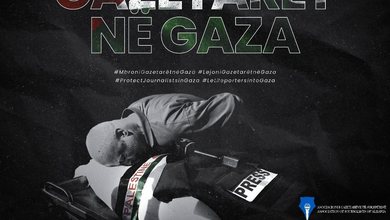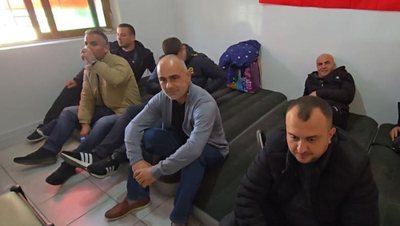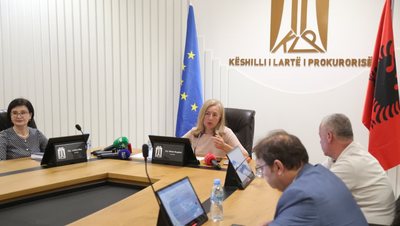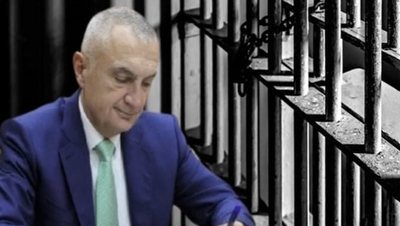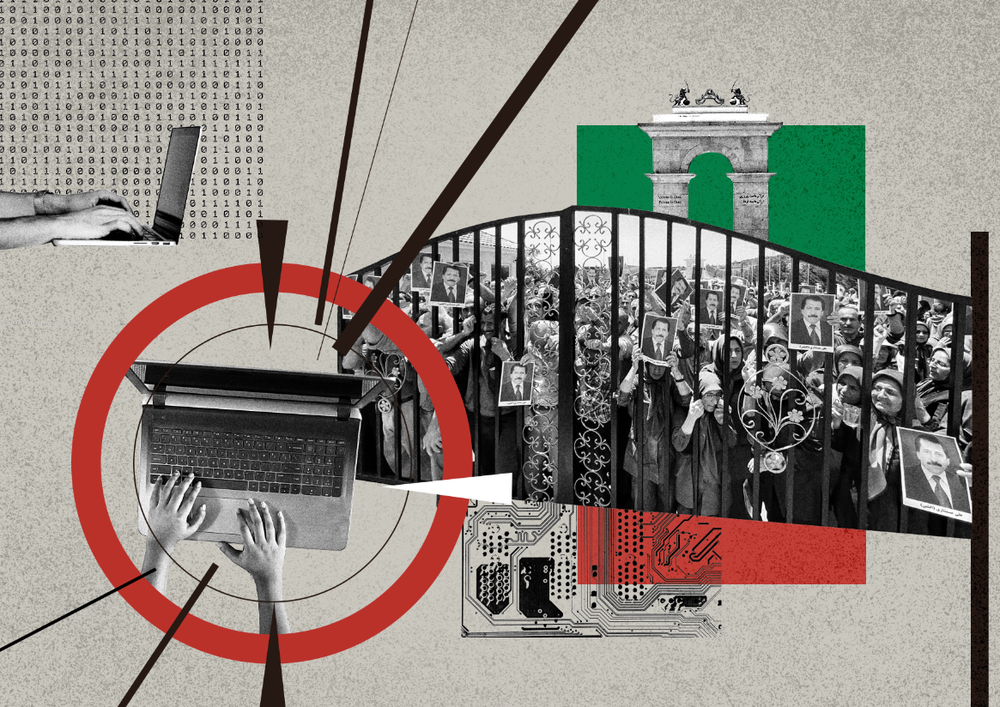
Although the 12-day war that erupted in June in the Middle East may have ended, the Islamic Republic of Iran is today considered a serious threat to the security of Europe and the United States.
This became clear in early August through a joint statement by 14 Western states, including Albania, which denounced the efforts of Iranian intelligence services to persecute dissidents, politicians, journalists, and religious minorities in their territories.
"We are united in opposing efforts by Iran's intelligence services to kill, take hostages or harass people in Europe and the United States in clear violation of our sovereignty," the joint statement said.
Albania is not just a symbolic signatory of this declaration.
Since 2013, when it decided to shelter exiled members of the Iranian opposition, part of the Mojahedin-e-Khalq organization, MEK, Albania has been continuously targeted by Iran through propaganda and disinformation, plans for terrorist attacks, or a hybrid cyber war.
However, security problems are not limited to Iran.
Over the past two years, Albanian law enforcement institutions have been involved in a complex investigation into MEK members, who are accused of launching cyberattacks on Iran in violation of the agreement granting them humanitarian protection in Albania.
The Special Prosecution Office is investigating MEK members for the criminal offenses of provoking war, illegal interception of computer data, and interference in computer systems.
“We are in the ongoing phase of in-depth investigations, mainly the expert assessments of the hundreds of devices that have been seized,” the prosecutor in the case, Vladimir Mara, told BIRN. “I can tell you that international partners are also involved in this investigation,” he added.
Albania currently houses around 2,500 members of the Mojahedin-e-Khalq organization in the sprawling Ashraf 3 camp in Manzë, Durrës. Although their protection status has not changed, the Interior Ministry told BIRN that it was “reviewing on a case-by-case basis requests for the renewal of residence permits” by MEK members.
Although not unforeseen, the security implications of harboring the MEK expose the country to long-term risk, as members of this organization “cannot be expelled or repatriated.”
"Albania has known about this danger of political activity from the beginning, when it agreed to shelter [MEK], but it must be said that it has been unable to keep it under control so as not to compromise security," said Endri Tafani, an international relations analyst.
MEK leaders did not respond to BIRN's questions by the time this article was published.
"Provocation of war"
The Mojahedin-e-Khalq, MEK, is a group with a complicated history. Founded in 1965 by Marxist students opposed to the Shah of Iran's regime, it turned against the Islamic Republic after the 1979 revolution and led a campaign of attacks.
In the mid-1980s, several thousand MEK members fled Iran to Iraq, where former dictator Saddam Hussein used them as an armed force during the Iran-Iraq War. The US designated the MEK as a terrorist organization in 1997, but removed it from the list in 2012 after the group said it was renouncing violence and weapons to focus on political advocacy against the Iranian regime.
After the US-led invasion of Iraq in 2003, allied forces provided protection to the MEK and in 2012, began relocating them to Albania.
Tafani compares the current history of the Iranian opposition in exile to the Albanian anti-communist community in Western Europe during the Cold War, which shrank in numbers and political importance over the years.
"People detach from the community and pursue interests by making their own choices in life, legal or not. Under these conditions, it becomes easy for Iranian secret services to penetrate the organization and recruit its members," Tafani stressed.
Since 2018, MEK members in Albania have been sheltering in the “Ashraf 3” camp – a fortified town of 127 buildings, spread over a nearly 40-hectare hill in Manzë, Durrës. Of the approximately 3,000 Iranian citizens brought to Albania, around 450 are estimated to have left the camp and the country so far, some illegally.
The opposition group is often described as a sect by critics, due to its devotion to its late leader, Masoud Rajavi, and his wife, Maryam. Since the 1980s, MEK members have said they have renounced family ties and intimate relationships for what they describe as a revolutionary life.
From their compound in Manz, through the internet and international conferences, MEK members agitate for the overthrow of the mullahs' regime in Iran.
In early 2023, the Computer Crime and Anti-Terrorism departments of the State Police launched a joint investigation into MEK members, on suspicion that they were involved in political activities and cyberattacks against several institutions of the Islamic Republic of Iran.
The investigation was initially based on monitoring social networks, mainly Telegram, and culminated in a search operation at the "Ashraf 3" camp in Manzë on June 20, 2023, in implementation of a decision of the Special Court.
The entry of police forces into the Manza camp was met with revolt and clashes by MEK members, resulting in the injury of 15 police officers and 21 camp members.
Në fund të operacionit u sekuestruan 96 njësive kompjuterike, dhjetra lap-topë, tableta si dhe materiale të bollshme shkresore, të cilat sipas policisë, disa anëtarë të MEK tentuan që t’i asgjësonin pa sukses me zjarr.
Operacioni policor në kampin e Manzës, dy vjet më parë, ishte një akt i detyruar për të minimizuar kërcënimet ndaj sigurisë kombëtare.
Sipas dokumenteve hetimore, për shkak të strehimit të MEK, Shqipëria u kthye në një target për shërbimet inteligjente Iraniane, të cilat përmes aktiviteteve propagandistike dhe ato të dezinformimit synonin që të shkëpusnin sa më shumë anëtarë të saj, me qëllim shpërbërjen e plotë të organizatës.
Hetimet paraprake tregojnë se organizata MEK ishte duke bërë të njëjtën gjë ndaj Iranit.
“Organizata “MEK” është duke bërë të njëjtën gjë dhe nga ana e tyre kanë rritur aktivitetin për t’ju kundërvënë kësaj strategjie,” thuhet në dokument.
Mungesë strategjie
Historia e marrëdhënieve diplomatike mes Shqipërisë dhe Iranit është e shkurtër dhe e mbushur me tensione. Ato u lidhën në vitin 1999 dhe u shkëputën në vitin 2022 me dëbimin e diplomatëve iranianë nga ambasada në Tiranë.
Në vitin 2019, Policia shqiptare në bashkëpunim me partnerët ndërkombëtarë zbuluan një celulë terroriste të njësisë së jashtme të forcave iraniane, QUDS, e cila u akuzua se kishte për qëllim të kryente sulme ndaj lëvizjes opozitare MEK.
Në korrik të vitit 2022, Irani akuzohet se ndërmorri një seri sulmesh kibernetike ndaj portalit shtetëror “E-Albania” dhe infrastrukturës digjitale të Shqipërisë, që sipas Ministrisë së Punëve të Jashtme ishte “në nivelin e një lufte kibernetike”.
“Vendi ynë i konsideroi këto sulme në kundërshtim me frymën dhe shkronjën e Konventës së Vjenës për Marrëdhëniet Diplomatike të vitit 1961, duke u ngjitur në nivelin e një lufte kibernetike të nisur nga Republika Islamike e Iranit kundër Republikës së Shqipërisë,” tha Ministria e Jashtme për BIRN.
“Nisur nga kjo situatë, në muajin shtator 2022, Këshilli i Ministrave i Republikës së Shqipërisë vendosi ndërprerjen e marrëdhënieve diplomatike me Republikën Islamike të Iranit, me efekt të menjëhershëm. Që nga ndërprerja e tyre marrëdhëniet dypalëshe me Iranin mbeten të ngrira dhe kjo situatë nuk ka ndonjë ndryshim edhe aktualisht,” shtoi Ministria e Jashtme.
Ndërsa në dhjetor 2022, Gjykata e Posaçme dënoi me 15 vjet burg për terrorizëm Bijan Pooladrag, një ish-anëtar i MEK, i akuzuar për pjesmarrje në një komplot në tentativë ndaj kampit Ashraf 3 për llogari të shërbimeve sekrete iraniane. Pooladrag i mohoi akuzat dhe theksoi përmes një avokati se ishte viktimë për shkak të përpjekjeve për të ndërtuar një jetë jashtë kampit.
Historiku i konflikteve me Iranin rrit shqetësimet për sigurinë e vendit, ndërkohë që vihen në dyshim edhe kapacitetet për të mbajtur nën kontroll anëtarët e grupit MEK.
“Albania accepted the MEK mainly for humanitarian reasons and with pressure from the US and the UN, but the lack of advanced security infrastructure and capacity to monitor the camp’s activities has created challenges,” says Redi Këlliçi, a lawyer and expert on the issue.
According to him, Albania cannot cope with this delicate situation alone, so any decision will require coordination with the United States and the United Nations.
“The country depends on foreign support to address complex threats, such as cyberattacks or intelligence operations,” Këlliçi added.
Meanwhile, Endri Tafani underlines that Albania does not have a clear strategy on what to do with the MEK community, especially after allowing them to build a separate city, making it difficult for them to integrate into Albanian society.
"The problem is that if Albania were to act in this way, then the entire political organization would fall, and this is not accepted by a good part of the community, nor by other allied states, which see the political organization as part of the Iranian opposition that should be supported as a weapon against the Iranian regime," said Tafani.
"Under these conditions, Albania is in a strategic impasse and is simply trying to minimize the consequences that come from this situation," he concluded./Reporter.al


